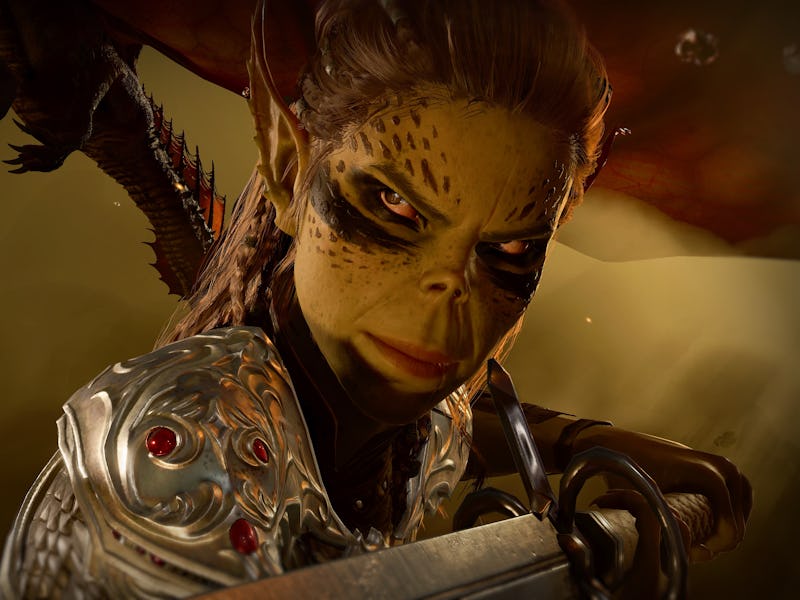Baldur’s Gate 3 Dev Larian Isn’t Working On A Sequel — And That’s Great
Out of the dungeon.

After the massive success of Baldur’s Gate 3 last year, it seems only natural that developer Larian would dive into a sequel for its next project. So it’s surprising, and no doubt disappointing for some players, to learn that’s not even on the table. Director Swen Vincke said last week that the studio is moving away from the Forgotten Realms for its next game — and that’s great for both Larian and its fans.
“There are a lot of constraints on making D&D, and 5th Edition is not an easy system to put into a video game,” Vincke said in an interview with IGN. “We had all these ideas of new combat we wanted to try out and they were not compatible.”
As much as we’ll miss Karlach, it’s time to move on.
So the next Larian game won’t be based on D&D, and Vincke says it won’t be another entry in the Divinity: Original Sin series, either. That may be a let-down for fans of either game, but I couldn’t be happier to hear it. I’ve written before about the problems with D&D, from its restrictive combat system to the racism at the heart of its lore, and how Baldur’s Gate 3 could be an even better game without the system weighing it down. So to hear Vincke say that Larian’s next game is doing something with combat that’s not possible in the D&D ruleset has me excited.
The rules of D&D limit how you can build your character, what you do with your abilities, and what sorts of actions are even possible to a greater degree than a lot of its tabletop competitors. There’s a good reason why every game of D&D I’ve ever played or even heard of makes extensive use of homebrew, rules made up by individual play groups to make the game more fun. Translate the system into a video game and the ability to change the rules or even use powers in unorthodox ways — an absolute pillar of tabletop play — completely disappears.
Divinity: Original Sin 2 might be a little too chaotic at times, but it’s never boring.
Larian addressed some of the issues with D&D by tweaking the way that certain spells work. For instance, in tabletop D&D, thaumaturgy is a spell that allows for many different minor magical effects, like creating sound from nothing or changing the color of a flame. It’s a versatile spell with no immediate practical benefits, and coming up with creative ways to use it is a perfect example of how tabletop games reward creativity in a way that video games can’t. In Baldur’s Gate 3, thaumaturgy briefly makes the user better at intimidating people. Without the ability to interpret rules creatively, even the best parts of D&D don’t hold up in video game form.
Compare this to Larian’s Divinity: Original Sin 2. Its freeform classes allow you to combine spells and abilities from as many disciplines as possible, so you can build exactly the kind of character you want. The abilities themselves also get much more interesting than anything D&D allows, from growing bull horns and tentacles to attack foes to absorbing your enemies’ spilled blood to heal your own wounds. Original Sin 2 is a playground of inventive design, and it feels like a peak into the soul of an incredibly inventive studio. If Larian is leaving D&D behind to free itself of the system’s “constraints,” as Vincke said, I can only hope it’s doing so to chase ideas even wilder than what’s found in Divinity: Original Sin 2.
It’s far too early to speculate on exactly what Larian’s next game will borrow from its previous work or what entirely new ideas it will bring to the table. Rather than any hypothetical feature, it’s the idea of the skilled developers at Larian following their passion that’s really enticing. As Vincke told IGN, the potential for Baldur’s Gate 3 DLC “wasn’t really coming from the heart,” and the team was “elated” to move away from it. Whatever comes next, I can’t wait to see the ideas that have Larian so eager to leave even a game as great as Baldur’s Gate 3 behind.